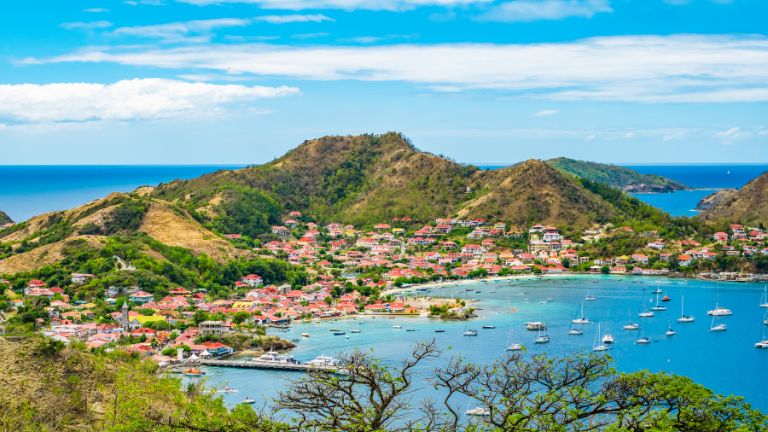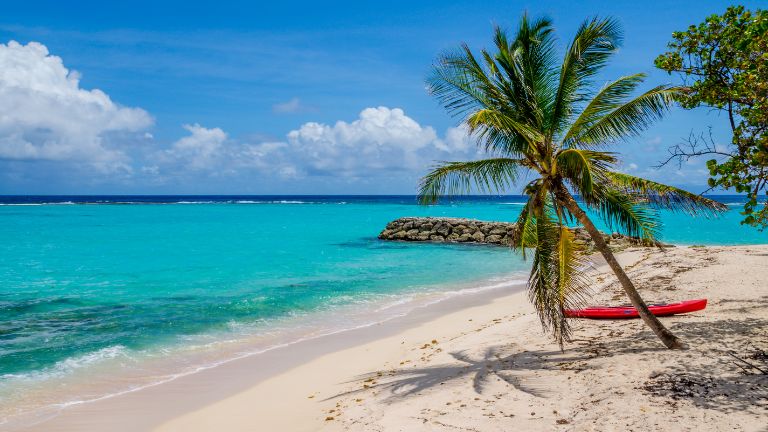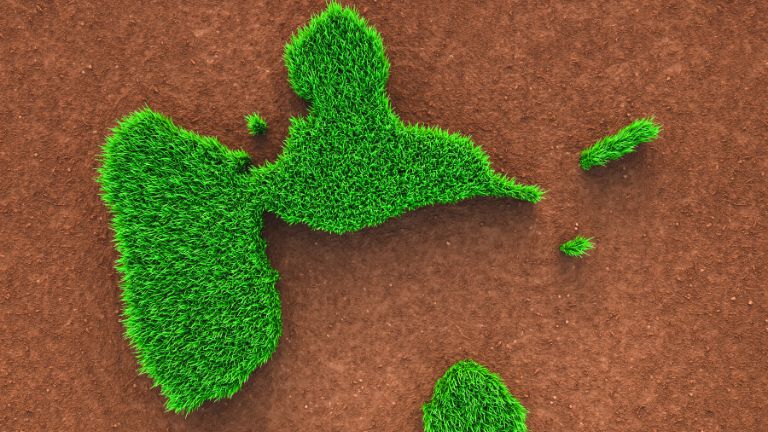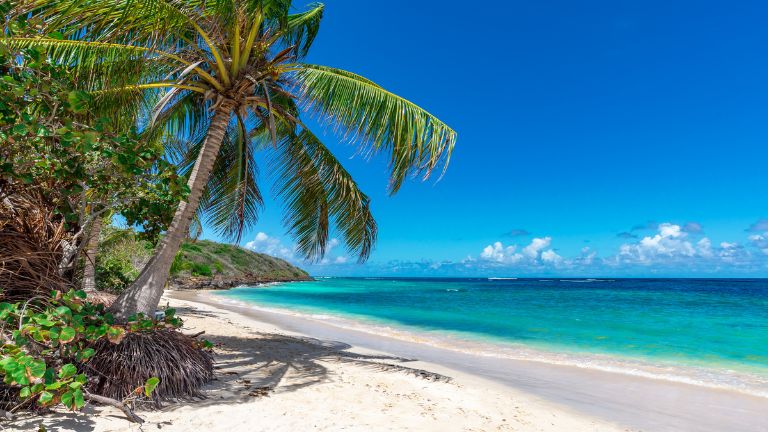Guadeloupe is a Caribbean island that conjures up images of fine sandy beaches, lush vegetation and sparkling turquoise waters. But did you know that its picturesque name has a fascinating origin? In this article, we’ll delve into the history of Guadeloupe and discover how it got the name that gives it its unique identity.

A meeting of two cultures: Amerindian and Caribbean
To understand the origin of Guadeloupe’s name, we need to go back to the island’s earliest inhabitants. Before the arrival of Europeans, Guadeloupe was inhabited by Amerindians, who lived in harmony with nature and used the island’s resources to support themselves.
The Amerindians called the island« Karukera« , which means« island of beautiful waters » in their language. This name refers to the beauty of the rivers, waterfalls and freshwater springs that were abundant on the island. The Amerindians lived in symbiosis with this natural environment, drawing on the riches of the land and sea for sustenance and protection.

However, the arrival of the Europeans upset this balance. French explorers led by Christopher Columbus arrived on the island in 1493 and renamed it « Santa María de Guadalupe de Extremadura » in honor of the Virgin of Guadalupe, patron saint of the Spanish city of Cáceres.

From Guadalupe to Guadeloupe: the influence of French settlers
The name given by the Spanish explorers did not survive long, as Guadeloupe soon became a French colony. The French settlers brought with them their own language and culture, which led to the Frenchization of the island’s name.
Over time, « Guadalupe » evolved into « Guadeloupe ». This linguistic evolution can be attributed to French pronunciation and influence on the Spanish language. French settlers adopted the name « Guadeloupe » to designate the island, thus shaping its French-speaking identity.

A name that spans the centuries: Guadeloupe today
Today, the name « Guadeloupe » is known the world over. It evokes tropical vacations, a rich Creole culture and exceptional biodiversity. Guadeloupe has become a popular tourist destination, attracting visitors from all over the world with its natural charm and vibrant culture.
Guadeloupe’s name reflects its eventful history, marked by the interaction of Amerindian, Spanish and French cultures. It is a testament to the island’s diverse heritage, natural beauty and unique blend of traditions and customs.

Conclusion
In conclusion, the origin of Guadeloupe’s name dates back to the time of the Amerindians, who called it « Karukera ». Later, European settlers renamed the island « Guadalupe » in honor of the Virgin of Guadalupe, but the name evolved into « Guadeloupe » under the influence of French settlers. Today, Guadeloupe is an iconic destination that embodies its enchanting name and offers visitors a unique experience blending natural beauty, Creole culture and rich history.
The next time you visit Guadeloupe, remember the history behind its name and the richness of its cultural heritage. It’s an invitation to explore this island paradise and learn more about its fascinating past.
See also our article: The history of the Guadeloupe flag










